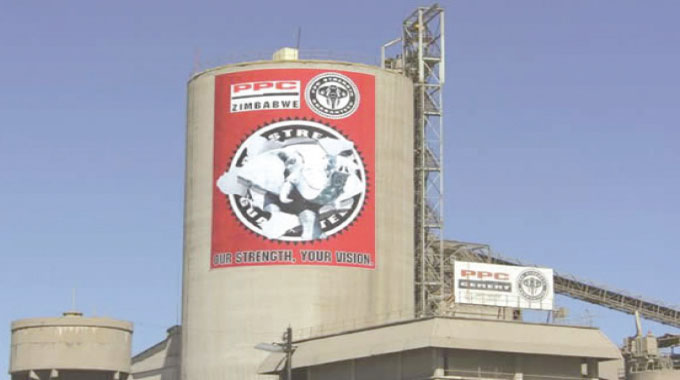The Chronicle

Nqobile Bhebhe, Senior Business Reporter
THERE is no need for Zimbabwe to import cement as it has adequate supplies and capacity to meet all ongoing construction projects by the Government and private sector, PPC Zimbabwe managing director, Mr Kelibone Masiyane, said yesterday.
His sentiments come at a time when the local cement industry players have expressed frustration at the influx of cheap cement in the market, which they say is threatening the viability of the operations.
Briefing members of the Parliamentary Committee on Industry and Commerce who were on a fact-finding mission to the factory, Mr Masiyane said Zimbabwe has excess cement capacity.
The country has the capacity to produce 2,6 million tons of cement per annum with demand hovering around 1,5 to 1,6 million tons per annum. Lafarge Zimbabwe and PPC control more than 70 percent of the domestic market.
Apparently, so far this year, cement imports have topped 300 000 tons, said Mr Masiyane, adding that such import volumes were the worst in years.
“When we advocate for protection, we understand that Africa is moving towards a free trade area, I think as a country before we open up our borders, we make sure that our industries are ready,” he said.
“In Zimbabwe we have over-capacity of cement. If you look at installed capacity, which is over three million tons per annum and with demand currently seating at about 1,6 million tons, we have access capacity.
“That is why we are saying there is no need to bring in imports because all the players in the industry are able to satisfy the local demand.”
Mr Masiyane said in the event of stoppages in production due to scheduled maintenance works and breakdowns, the players should be allowed to import and supply locally. This, he said, would help get rid of middlemen who are causing market price distortions.
“There are import licences t
 PPC Zimbabwe
PPC Zimbabwehat are being issued and the ministry of Industry and Commerce does check with us to say we have this entity that would like to import, is there a problem with that?
“In all the cases that I have received communication from the Ministry of Industry and Commerce, I have said we will supply and we have supplied.
“There are middlemen who have seen an opportunity to bring in cheap cement and they are not in manufacturing.
“They are selling huge volumes and we have advocated for a framework to say to the players in the industry, if there is a need to import cement if we are out of production doing a major maintenance, we must import the cement ourselves. The moment you allow individuals, people who are not investing in any infrastructure, it starts to destroy the industry.”
Industry committee chair, Mr Joshua Sacco, said the purpose of their visits to Lafarge, Diamond Cement and PPC was to ascertain whether they do have capacity to produce cement.
“There is a lot of construction going on in the country such as Hwange Thermal Power Station, Gwayi-Shangani and Mbudzi interchange, there is a perception that we do not have enough cement in the country,” he said.
“As a committee, we are looking at this issue. We are also engaging on pricing and quality of our cement and energy issues.
“Energy supply has improved but we want further improvement. On imports we have been assured that cement producers have enough cement for the domestic market. We are happy that that capacity is in place.
“Going forward we need to improve on viability, issues such as cost factors so that when we open up for the Africa free trade area we should be competitive as a nation.”
The tour came at a time when cement producers have recently expressed concern over the influx of cheap imports and costs of doing business, which tend to cripple domestic product competitiveness.
 PPC managing director Mr Kelibone Masiyane shows the company’s new product range which was launched in Bulawayo yesterday
PPC managing director Mr Kelibone Masiyane shows the company’s new product range which was launched in Bulawayo yesterdayThe committee started the tour on Monday with a visit to Lafarge Cement Zimbabwe in Harare, moved to Kwekwe-based Diamond Cement and rounded off the tour at the Bulawayo-based PPC Zimbabwe yesterday.
Demand for cement has been strong over the past two years, largely driven by various Government infrastructure projects including the construction of roads, dams and schools as well as housing development mainly funded by diaspora remittances.
The Government is spending billions of dollars on infrastructure development including roads and dams. In line with its devolution agenda, more funds have been released to finance the construction of schools and hospitals in all provinces.
On the other hand, private sector development projects have been on a rise especially investment in commercial structures. Housing construction has also given momentum to the sector, largely driven by diaspora funds, according to industry players.
Article Source: The Chronicle
